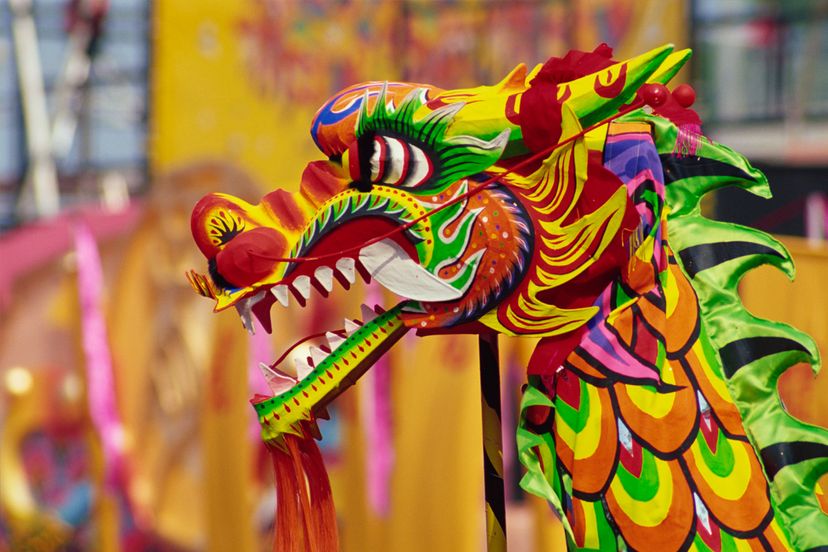
About This Quiz
"Are you ready to test your knowledge of international holidays? Take a break from the hustle and bustle of daily life and dive into the fascinating ways people around the world celebrate special occasions. From Diwali in India to Oktoberfest in Germany, this quiz will challenge your cultural awareness and expand your horizons!
Join Bambi Turner on a whirlwind tour of global festivities in ""The International Holidays Quiz."" In just 2 minutes, you'll travel from country to country, exploring unique traditions and customs that make each celebration special. Whether you're a seasoned traveler or a curious homebody, this quiz is sure to entertain and enlighten!
Don't miss this opportunity to broaden your cultural knowledge and impress your friends with your international holiday trivia skills. With vivid images and engaging questions, ""The International Holidays Quiz"" is a fun and educational way to learn about the diverse ways people around the world come together to commemorate important events. So, what are you waiting for? Dive in and start your global holiday adventure today!
"Vesak is a major Buddhist holiday that celebrates the day that the Buddha achieved enlightenment.
Celebrated in November or December, Hanukkah - a word that means "dedication" - is an important holiday in the Jewish faith.
Hanukkah lasts eight days to celebrate an occasion when one day's worth of oil lasted a miraculous eight nights.
Advertisement
The people of Sweden, Norway and parts of Finland celebrate St. Lucia day each Dec. 13.
Kwanzaa was developed in 1966 and blends many traditional African holiday customs.
Kwanzaa is Swahili for "first fruits." The holiday is an opportunity to celebrate the harvest each year.
Advertisement
Tet is the Vietnamese New Year, an opportunity to remember ancestors while celebrating the year to come.
Basant is a Hindu holiday where people use kites to celebrate and carry messages to the gods.
The people of Ghana in Africa celebrate Aboakyere by hunting deer, antelope and other animals.
Advertisement
Obon is a Japanese holiday where people use lanterns to receive and release the souls of ancestors.
In northern India, people welcome the spring with a Holi celebration, which consists of a large water fight.
Passover is a Jewish celebration of the Israelites' departure from Egypt.
Advertisement
The traditional Passover meal is known as Seder. During Passover, people celebrating the holiday may not consume bread or other leavened products.
Hindus in India celebrate Diwali, a five day festival of lights and one of the country's most important holidays.
Easter, which occurs in March or April, celebrates the resurrection of Jesus.
Advertisement
The Mexican Day of the Dead is celebrated each Nov. 1.
The month-long period of Ramadan requires Muslims to fast from sunrise to sunset each day.
After a month-long period of fasting, people of the Islamic faith celebrate Id al-Fitr, a feast of fast-breaking.
Advertisement
La Posada commemorates Joseph and Mary's travels from Nazareth to Bethlehem.
Hari Merdeka is a celebration of Malaysian independence from British rule, and it is held each Aug. 31.
Bastille Day, which commemorates the storming of the Bastille and the start of the French Revolution, is celebrated each July 14.
Advertisement
The Chinese New Year celebration relies on a lunar calendar and may start in January or February depending on the cycle of the moon.
Epiphany, which is celebrated on January 6, celebrates the day the Three Wise Men arrived in Bethlehem with their gifts.
The good witch Befana comes bearing gifts for Italian children on Epiphany.
Advertisement
Songkran celebrates the Thai New Year and features a truly spectacular water fight.
Germany celebrates Unity Day every Oct. 3 to mark the day when the reunification treaty was signed between the East and West in 1990.
Christmas falls in the middle of summer in Australia, and many residents celebrate the holiday by soaking up the sun on Bondi Beach.
Advertisement
Greek folklore suggests that tiny goblins called Kallikantzaroi wreak havoc during the week after Christmas.
The pagan holiday of Yule is held on the winter solstice to celebrate the beginning of the season and the return of the sun.
The Spanish refer to Christmas Eve mass as "La Misa del Gallo," or "The Mass of the Rooster."
Advertisement